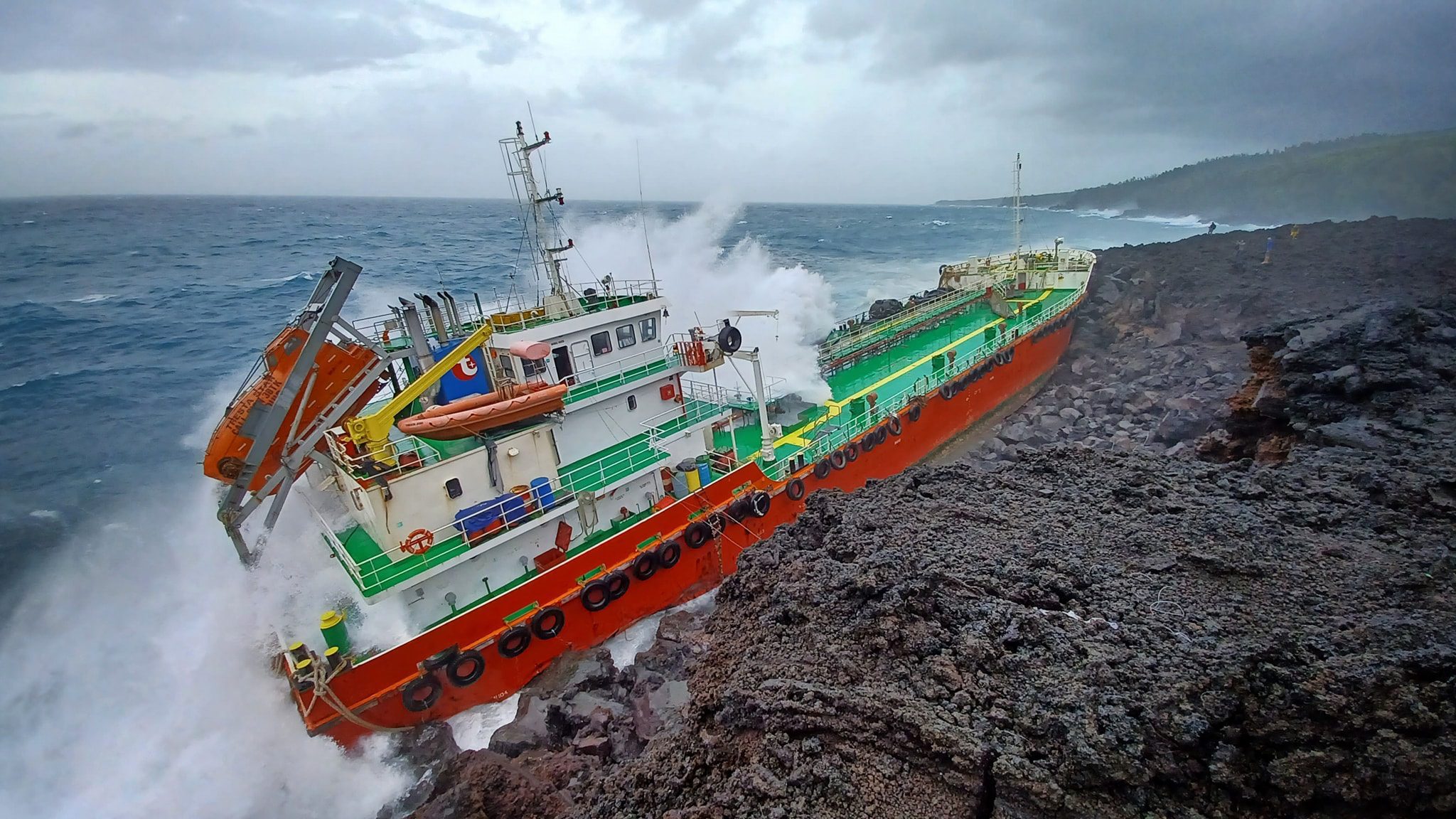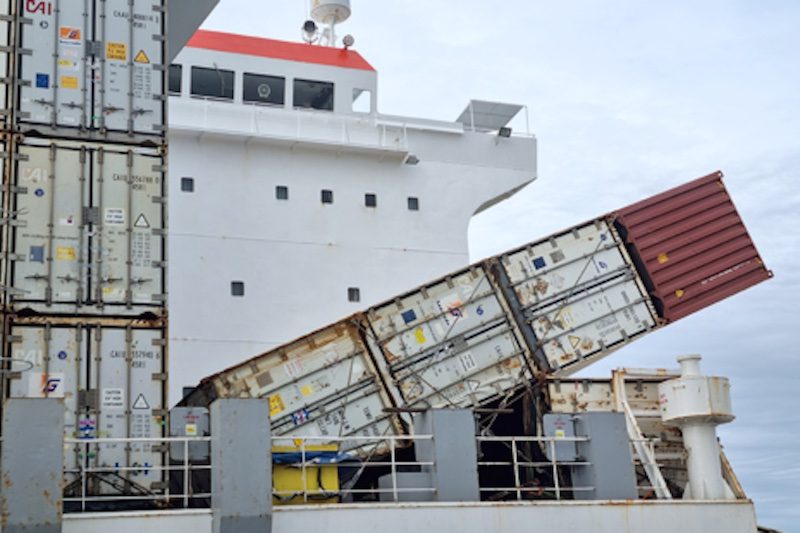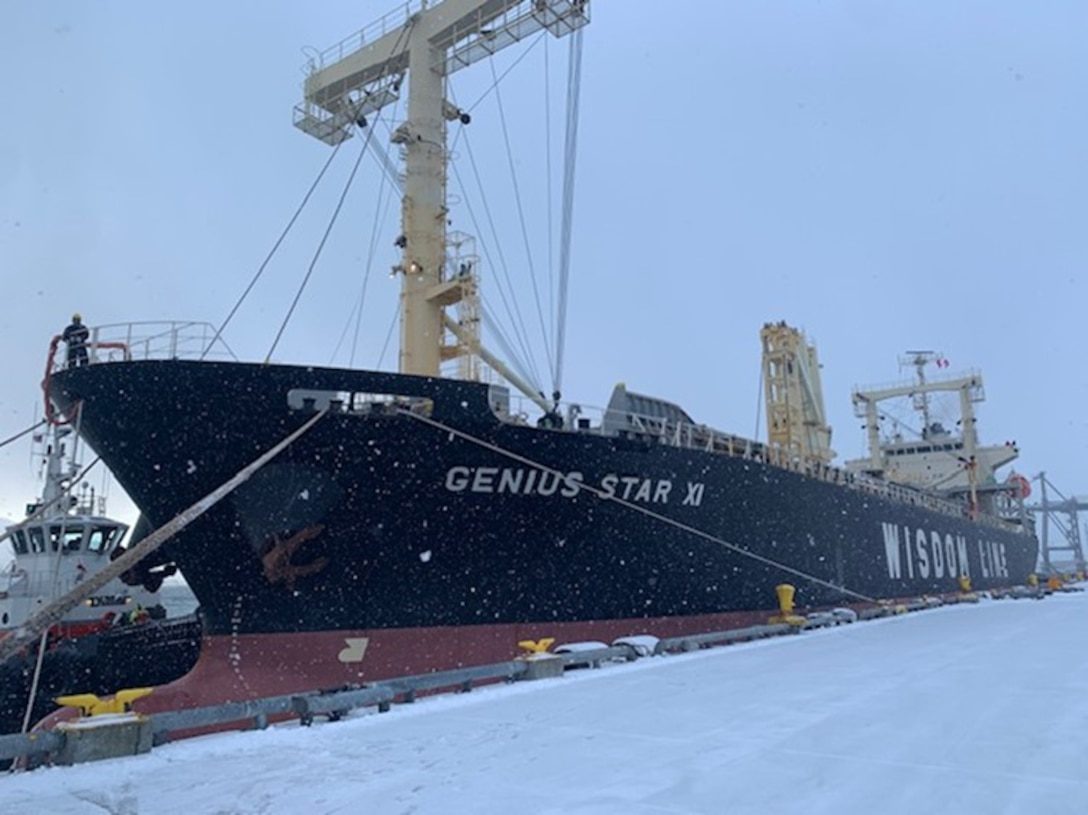By Vel Moonien in Mauritius
The Mauritian-flagged tanker that ran aground earlier this month on Reunion Island in the Indian Ocean is in the process of breaking up.
A breach on the port side of the MT Tresta Star, exposed to the heavy swell caused by the recent passage of tropical cyclone Emnati, has “widened significantly” in size, according to an update from the Préfet of Reunion Island.
Parts of the hull have also been torn off, revealing a gaping hole of “several meters” through which water can enter the vessel, the Préfet reported. The Préfet also says it fears “an “imminent dislocation” with pieces of the vessel breaking off and sinking on the spot or coming aground on the coast.
It is also dismayed by “new discharges of oily water” expected in the coming days after an oil slick of 2.5 km in length has been reported off the coast of Saint-Philippe.
“A trail of brownish water, symptomatic of an oily substance emulsified with sea water is the proof of a sea pollution,” said the Préfet. A marine pollution plan will be initiated after the passage of Cyclone Emnati.
The MT Tresta Star grounded on February 3rd along the east coast of Reunion Island, at Tremblet’s Point, after losing power during Tropical Cyclone Batsirai. All 11 crew members were rescued by zip-line. The ship was not carrying any cargo at the time.
Three local non-governmental organizations, namely Attac, Extinction Rebellion and Greenpeace, have accused the Préfet of Reunion Jacques Billant and the French Minister of Overseas Territories Sébastien Lecornu, among others, of not taking appropriate measures to avoid such pollution, as fuel oil remains in the ship’s tanks.
With the vessel now breaking up, members of the Chinese salvage company Lianyungang Dali Underwater Engineering and the Greek firm Polygreen, recruited immediately following the grounding, have decided to pack up. They will leave Reunion Island this Tuesday due to a default in payment by the ship owner, Tresta Trading.
The ship owner is a subsidiary of an Indian company, also called Tresta Trading, and is owned by Shiny Shipping and Logistics, a company based in India. It had agreed with Lianyungang Dali Underwater Engineering and Polygreen, which had just completed the dismantling of the MV Wakashio’s bow in Mauritius, that a first oil transfer would be made two days after their arrival in Reunion.
“From two days, the delay has increased to two weeks. Unfortunately, we cannot continue to work without payment. Such an operation costs money. There is, among other things, the rental of a helicopter and various equipments. But nothing has been released so far,” says one of the team members in Reunion Island.
It is very likely that Five Oceans Salvage (FOS) will take over the operation. A team of the Greek firm was on the island a week ago for an assessment of the Tresta Star’s hull.
In July 2016, FOS had removed the MV Benita, a 44,183-ton cargo ship, which had run aground a month earlier on volcanic rocks near Le Bouchon, Mauritius, not far from where the MV Wakashio wrecked. Following its refloating, the Benita unfortunately sank while being towed to the shipbreakers.
FOS was also involved in the wreck removal of the South-East Asian trawlers KT Seroja, Ruang Lap and Hoi Siong from Mauritius’ Port-Louis’s harbor. Five years earlier, it had also removed the Angel 1 from the Poudre-d’Or reefs, in the northern part of the Mauritius.
Regarding the Tresta Star, an investigation has been launched by the Mauritian authorities and interviews are being conducted with crew members. “It is inconceivable that neither the ship owner, nor the shipping agent, nor the port authorities, took the initiative to give sufficient fuel to this barge to go to the high seas with the passage of the intense tropical cyclone Batsirai”, says one marine operator.
“They should have brought her back to port instead of asking her to go with 8 tons of fuel in her hold. Of course she will break down! She can hold up to 250 tons of fuel. 8 tons! That’s the dregs at the bottom of a wine bottle… We’re going to go to another catastrophe with such superficial procedures”, he added.
Sign up for our newsletter

 Join The Club
Join The Club











